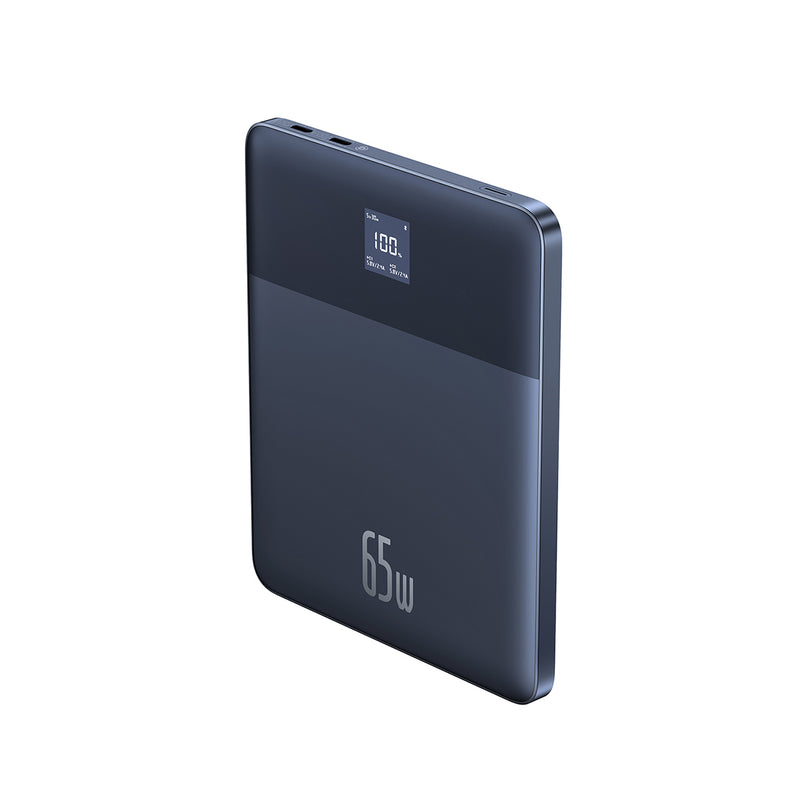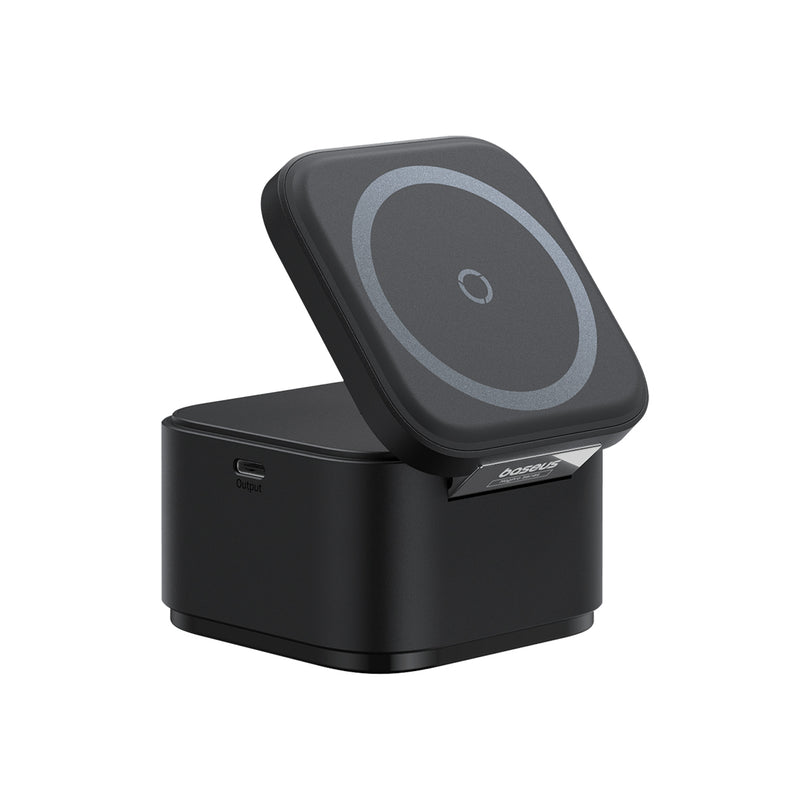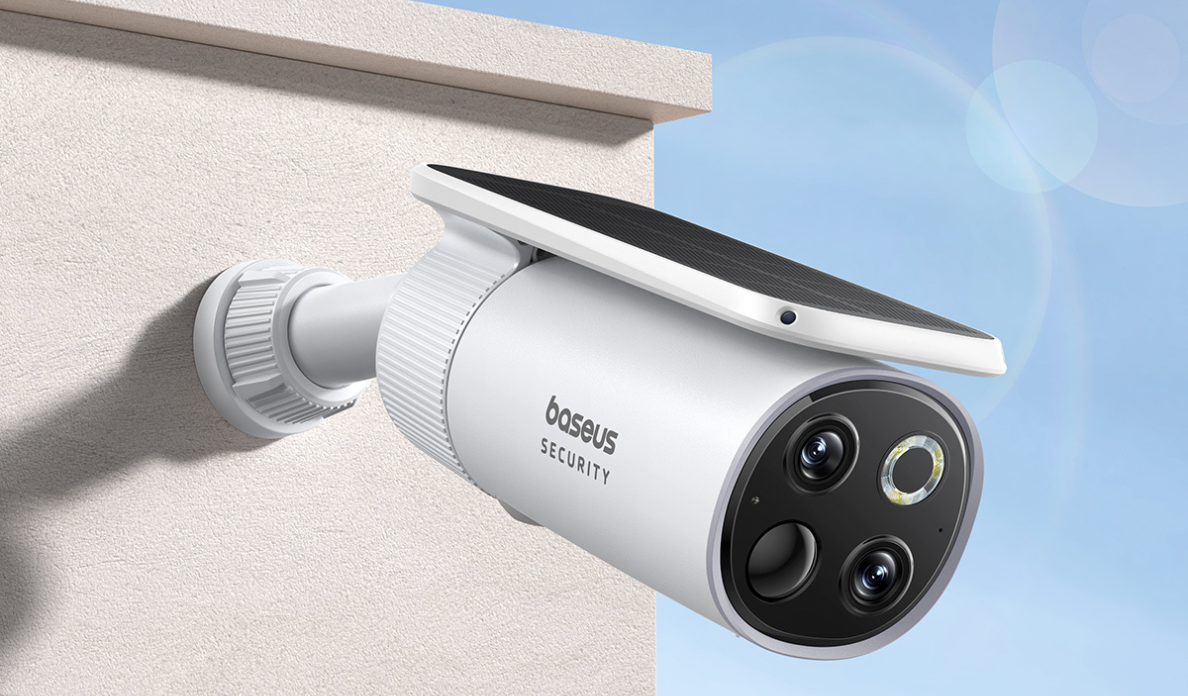
Home security is a top priority these days, with an increasing need to protect our homes and loved ones. Security cameras are a go-to solution, offering peace of mind by keeping an eye on things when we can't.
But like most tech gadgets, security cameras come in all shapes and sizes. You might have heard terms like Internet Protocol (IP) and High Definition (HD) tossed around. So, which one is best for your home security setup?
Sure, HD cameras promise clear video quality, but do they hold their own against modern IP cameras with cloud-based storage and remote access? This article will break down the differences between the two, helping you decide which technology is perfect for your home or business.
What is an IP Camera?

An IP camera, or Internet Protocol camera, is a type of digital video camera that transmits video data over a network, allowing you to monitor your property from anywhere in the world.
Unlike traditional analog cameras, which require dedicated coax cables, IP cameras connect to your Wi-Fi or home network, making them easier to install and manage.
IP cameras are known for their high-resolution video quality, often ranging from 1080p to 4K, ensuring crisp and clear footage. They offer remote access, so you can view live or recorded video from your smartphone, tablet, or computer.
Additionally, IP cameras integrate seamlessly with smart home systems, allowing for features like motion detection alerts, two-way audio for communicating through the camera, and cloud storage for secure, off-site video storage.
Commonly used in both residential and commercial settings, IP cameras are perfect for enhancing security, monitoring property, and staying connected to what matters most.
What is an HD Camera?

An HD camera, or High-Definition camera, captures video with a higher resolution than standard-definition cameras, providing clearer and more detailed images.
Typically offering resolutions of 720p (HD) or 1080p (Full HD), these cameras are ideal for capturing fine details, such as faces or license plates, which are crucial for security purposes.
HD cameras come in various types, including analog HD cameras like AHD (Analog High Definition), TVI (Transport Video Interface), and CVI (Composite Video Interface). Unlike IP cameras, HD cameras usually rely on traditional coaxial cables (like the ones you use for watching TV) to transmit video signals to a Digital Video Recorder (DVR), where the footage is stored and managed.
This setup can be more straightforward for those with existing analog systems and easier to troubleshoot for those unfamiliar with computer networks.
HD cameras are commonly used in settings where high image clarity is essential, such as retail stores, banks, and residential properties, where detailed footage is a top priority for security and monitoring.
Key Differences Between IP Cameras and HD Cameras
When choosing between IP and HD cameras, understanding their key differences can help you make an informed decision. Here’s a quick breakdown of how they compare across various aspects:
|
Feature |
IP Cameras |
HD Cameras |
|
Video Quality |
720p to 4K and above |
720p to 1080p |
|
Connectivity |
Network-based (Wi-Fi/Ethernet), wireless capabilities |
Cable-based (coaxial cables) |
|
Storage |
Cloud-based, base stations, local NVR |
Local storage on DVR |
|
Power |
PoE or Battery |
Separate power supply with dedicated power cable |
|
Cost |
Higher initial cost, potential cloud storage fees |
Lower initial cost, DVR and cabling costs |
|
Scalability |
Highly scalable, integrates with smart devices |
Limited scalability, fixed setups |
Below, we’ll go into more detail about the differences between HD and IP camera technology.
Video Quality and Resolution
IP cameras typically offer a broader range of resolutions, from 720p to 4K (and beyond). This flexibility allows for clearer and more detailed images, especially in high-resolution settings like 2K and 4K, which are ideal for capturing fine details such as faces and license plates.
In contrast, HD cameras usually max out at 1080p, providing good image quality but less detail compared to higher-resolution IP cameras.
Connectivity and Installation
IP cameras connect to your network via Wi-Fi or Ethernet, enabling both wired and wireless setups. This network-based installation provides more flexibility in camera placement and often results in simpler, less intrusive installation processes.
HD cameras, on the other hand, rely on traditional coaxial cables for connectivity, which can be more cumbersome to install and limits the placement of cameras to areas with existing cabling or where new cables can be easily routed.
Storage and Data Management
IP cameras often utilize cloud-based solutions, base stations, or Network Video Recorders (NVRs) for storage, providing flexible options for managing and accessing footage.
NVRs and base stations are especially useful for those who prefer local storage but still want the network capabilities of IP cameras. This setup allows for easy remote access and scalable storage solutions.
HD cameras typically use a Digital Video Recorder (DVR) system that stores footage locally on hard drives, requiring physical access for playback and management.
Modern DVRs can have remote access via the home network, but all footage playback is performed via a remote connection such as a VPN (Virtual Private Network) or port forwarding on the home router.
While this can mean lower ongoing costs, it lacks the flexibility and ease of access offered by cloud storage and NVR setups.
Power Supply Options
IP cameras offer various power options, including Power over Ethernet (PoE) and battery-powered models.
PoE allows the camera to receive both power and data through a single Ethernet cable, simplifying installation and reducing the number of cables needed. Battery-powered IP cameras offer greater flexibility in placement, especially in areas without access to power outlets.
In contrast, HD cameras typically require a separate power supply and dedicated power cable in addition to the coaxial cable for video transmission.
This can complicate installation and limit where the cameras can be placed unless additional power outlets are available.
Cost and Affordability
IP cameras can have higher initial costs due to their advanced features and capabilities. However, they often have lower ongoing costs if you opt for basic cloud storage plans.
HD cameras typically have lower upfront costs but may incur additional expenses for cabling and DVRs.
Additionally, IP cameras might come with hidden fees, such as subscription costs for cloud storage services, while HD cameras usually don't.
Flexibility and Scalability
IP cameras are known for their scalability and flexibility, easily integrating with other smart home devices and systems. This makes them ideal for users who want a fully connected and automated security solution.
HD cameras, being more limited by their reliance on physical cabling and analog systems, offer less scalability and integration potential, making them more suitable for straightforward, fixed-location setups.
The Advantages of IP Cameras for Home Security
IP cameras are excellent tools for boosting home security. Their high-resolution video capabilities can capture clear, detailed footage—whether it's 1080p or even up to 4K resolution.
This clarity helps you see crucial details like faces and license plates, which is incredibly useful when monitoring your property.
One major benefit of these cameras is their remote access feature. You can view live video streams from anywhere in the world using your smartphone or computer, offering peace of mind whether you're at work or on vacation.

The Baseus S1 Pro Outdoor Security Camera not only offers this convenience but also includes advanced motion detection to alert you instantly if there’s any activity around your home.
Integration with other smart home devices is another strong point for IP cameras. They fit seamlessly into automated systems, enhancing overall security measures effortlessly.

Certain models come equipped with color night vision technology that improves visibility in low-light situations—a key feature found in the Baseus N1 Outdoor Security Camera.
With its wide 145° field of view and long-lasting battery life (up to 210 days), the N1 provides reliable performance without frequent recharging needs.
These features make IP cameras versatile, highly effective, and more modern solutions for maintaining secure homes compared to HD cameras.
Choosing the Right Camera for Your Needs
Finding the right camera starts with understanding your unique security requirements. Here’s a helpful guide to simplify your decision:
- Location: For remote or hard-to-reach spots, think about using a wireless IP camera that offers battery or solar power options.
- Network Availability: Consider what kind of network you have available. While IP cameras need a steady internet connection, HD cameras operate via coaxial cables and require a DVR system. Pick according to your current setup.
- Desired Resolution: If capturing detailed images, like faces or license plates, is important to you, opt for an IP camera with a higher resolution (2K or 4K). Basic monitoring needs can be met by HD cameras offering resolutions between 720p and 1080p.
- Budget: Initial costs may lean lower with HD cameras; however, in the long run, IP cameras could prove more economical due to flexible storage solutions and simpler installation processes.
- Integration: Wanting seamless connectivity with smart home devices? An IP camera would serve you better here, thanks to superior integration capabilities.
Taking these points into account will ensure you choose the best camera tailored specifically for your security needs.
Finding Your Perfect Security Solution
Deciding between IP and HD cameras ultimately depends on your unique needs and preferences. IP cameras offer advanced features like high resolution, remote access, and smart home integration, while HD cameras provide reliable, straightforward monitoring.
By considering factors such as location, network availability, and budget, you can choose the right camera for your security setup.
Ready to enhance your home security? Check out our Baseus home security cameras to explore the range of options and find the perfect fit for your home and family.
 United States/English
United States/English









